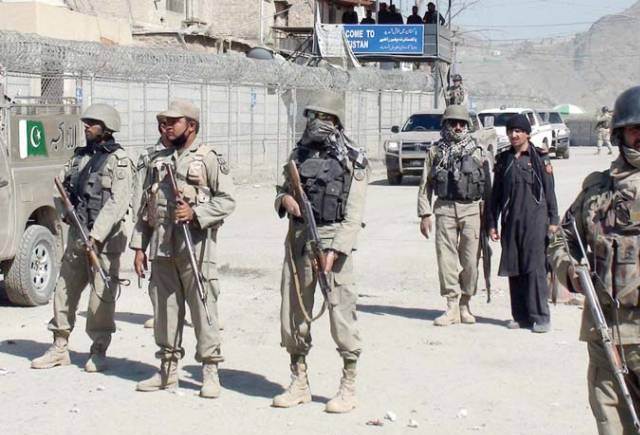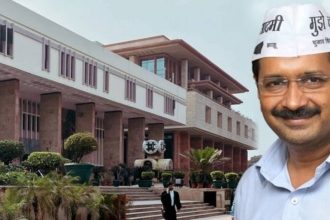Kabul seems to have refused to send to Islamabad its national security adviser and foreign minister, invited for discussion in the wake of the recent clashes between the security forces of the two neighbouring countries after Pakistan started building a gate at Torkham border as part of its new border controls.
Prime Minister’s Adviser on Foreign Affairs Sartaj Aziz on Thursday spoke to Afghan National Security Adviser (NSA) Hanif Atmar over phone and invited him and Afghan Foreign Minister Salahuddin Rabbani for talks on the current situation at Torkham border amid the ongoing tension.
Afghan National Security Council spokesperson Tawab Ghorzang also confirmed the Pakistani invitation but said Afghan government has decided to send instead a delegation under Deputy Foreign Minister Hekmat Khalil Karzai.
Kabul’s move appears to suggest that the Afghan government is not keen to have meaningful engagement with Pakistan, commented a senior government official while requesting anonymity.
The official, however, made it clear that Pakistan would welcome any Afghan delegation as it had no intention of prolonging the tensions along the Torkham border. “The Afghan government has not yet officially responded to the invitation extended by the PM’s adviser,” he added.
No date has been announced for the visit and both sides are coordinating to decide the date.
At Torkham, the busiest border crossing between Pakistan and its western neighbour, all activities are suspended since June 12 when Afghan forces resorted to ‘unprovoked firing’ resulting in the death of two Pakistani security officials including a major.
Later, both the sides declared a ceasefire. However, tensions persist and troops are still stationed along the border while thousands of people and vehicles are stranded on both the sides.
At the heart of the controversy is a new border mechanism Pakistan has started implementing from June 1. Under the new border controls, Pakistan has now made it clear that no one will be allowed to cross the key border crossing without valid a passport and visa.
However, Afghanistan objected to Pakistan’s move and started ‘unprovoked firing’ on June 12. Later, Islamabad and Kabul summoned each other’s envoys to record their respective protest over the border incident.
Afghanistan insists Pakistan cannot build any gate along the border without its consent while Pakistan says it is building the gate 37metres on its side of the border.
In a policy statement, the PM adviser on foreign affairs said Pakistan had introduced the new border controls as part of its counter-terrorism strategy to check the infiltration of terrorists and militants.
He clarified that Afghan authorities were taken on board regarding this decision and recalled that the Afghan Ambassador Dr Omar Zakhilwal met senior Pakistani security officials including army chief General Raheel Sharif in May to discuss the issue.
“During that meeting, it was agreed that Afghan side will allow completion of construction works at Torkham to regulate movement of people and traffic while Pakistan will allow the smooth flow of traffic across the border crossing, while the works continues.
“Pakistan has continued to honour this understanding till the unprovoked firing from Afghan forces disrupted the movements on June 12,” the adviser added.
Contrary to the Afghan government’s claims, Aziz made it clear that Pakistan had not violated any bilateral agreement or international law while implementing these new border rules. The two countries share nearly 2,600 km border, mostly porous, and the militants take advantage of the loose control.
Meanwhile, Prime Minister Nawaz Sharif and Afghanistan former president Hamid Karzai have underscored the need for peaceful solution to problems between Pakistan and Afghanistan.
Karzai visited Nawaz Sharif at his residence in London and enquired after his health following his open heart surgery, a statement posted on Karzai’s official Facebook account said. The Afghan leader was in London to attend a conference.
“Both sides hoped that the current difficulties would be immediately resolved,” the statement said in a veiled reference to the ongoing tensions along the Torkham border. The two leaders also stressed the need to strengthen and expand good relations between the two countries.
In his earlier statement on the Torkham issue, Karzai expressed “serious concern over the clashes at Torkham and hoped both sides would resolve the issue through diplomatic channels.”






